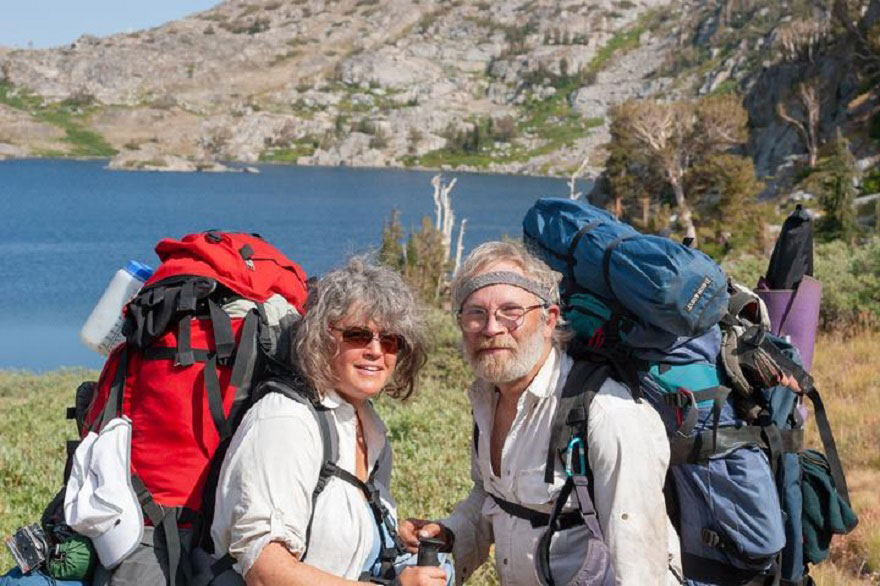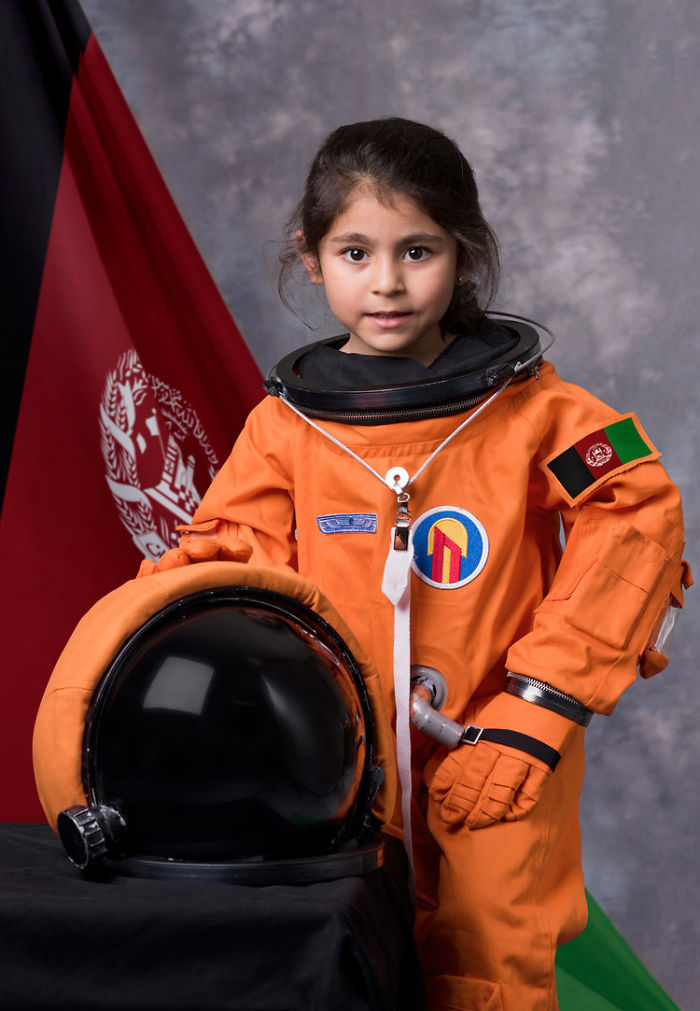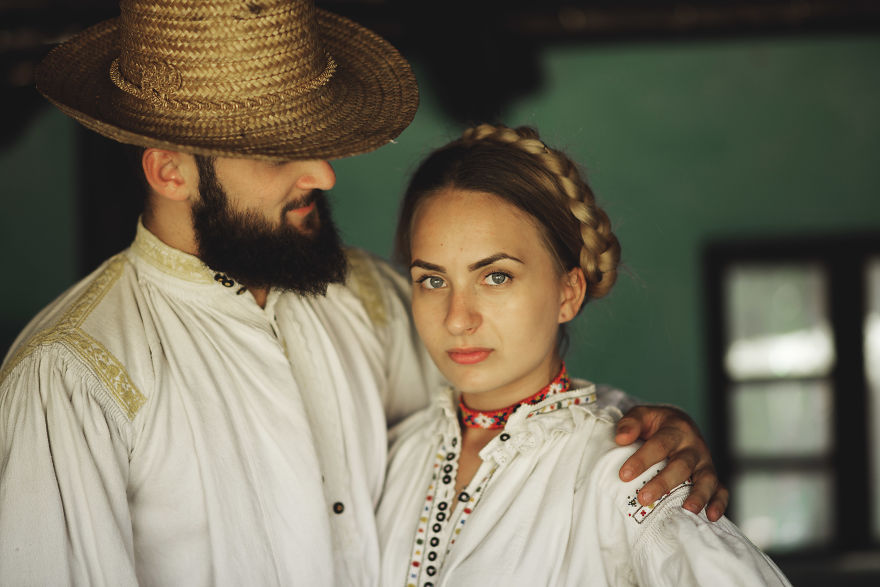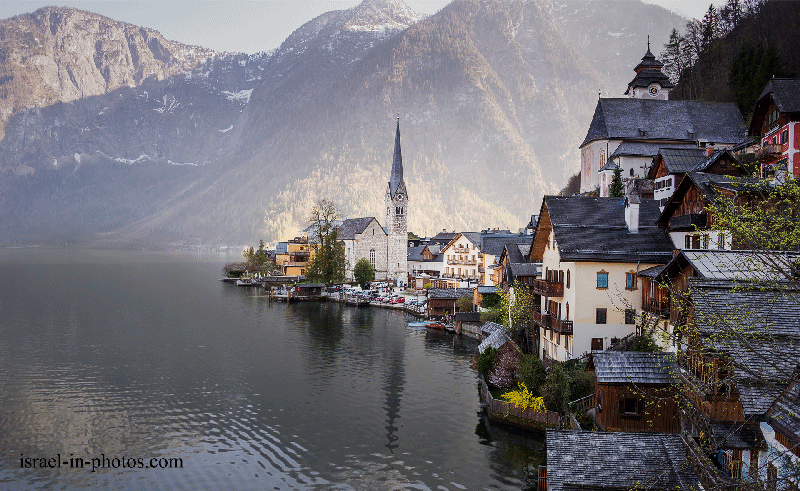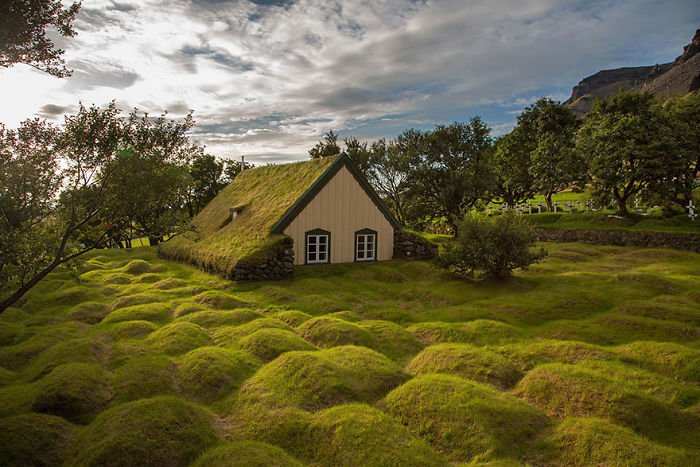2020 World Press Photo contest winners The World Press Photo Foundation recently announced the results of its 63rd annual World Press Photo Contest. World Press Photo of the Year, Story of the Year, plus winners across all 8 categories were included in Thursday evening's announcement.
Nearly 74,000 images were submitted by 4,282 photographers. 44 winners, 30 which are recognized for the first time, hail from 24 countries.
The jury, consisting of 17 professionals from 6 continents, selected 'Straight Voice' by Yasuyoshi Chiba (which was featured in our nominee coverage a few months back) as Photo of the Year. 'This moment was the only peaceful group protest I encountered during my stay. I felt their undefeated solidarity like burning embers that remain to flare up again,' says Chiba of his winning photo.
'Kho, the Genesis of a Revolt' by Romain Laurendeau, which documented the unease of Algerian youth that led to the biggest protest in decades, was selected as World Press Photo Story of the Year. 'It was impossible for a part of me not to recognize myself in these young people. They are young but they are tired of this situation and they just want to live like everyone else,' explains Laurendeau.
Elsewhere, fans of the Tiger King docuseries on Netflix will recognize Kevin Antle in Steve Winter's 'The Tiger Next Door' image, which won Second Prize in the Contemporary Issues – Stories category. All digital storytelling contest winners can be viewed on the World Press Photo homepage.
Winning photographs and multimedia will be on display during year-long worldwide exhibition, which premieres every year in Amsterdam. The launch date has been postponed due to the current pandemic. Those interested in attending events can check in with the World Press Photo event calendar.
World Press Photo Story of the Year: 'Kho, the Genesis of a Revolt' by Romain Laurendeau (France)
Caption: Football fans gather in the street and sing during a match that is taking place behind closed doors due to violence, in Algiers, Algeria, on 22 November 2014.
Story: Young people make up more than half of Algeria’s population, and according to a UNESCO report 72% of people under 30 in Algeria are unemployed. Pivotal moments in Algerian history, such as the ‘Black October’ revolt of 1988, have had angry youth at their core. Black October was harshly suppressed—more than 500 people were killed in five days—and was followed by a ‘black decade’ of violence and unrest.
Thirty years on, the effects of that decade are still present. In a traumatized country, high unemployment leads to boredom and frustration in everyday life and many young people feel disassociated from the state and its institutions. In neglected working-class neighborhoods such as Bab el-Oued in Algiers, young people often seek refuge in diki—private places that are ‘bubbles of freedom’ away from the gaze of society and from conservative social values. But the sense of community and solidarity is often not enough to erase the trials of poor living conditions.
In February 2019, the United States of young people from working-class neighborhoods again took to the streets in what became a nationwide challenge to the reign of long-time president Abdelaziz Bouteflika.
Kho (the word means ‘brother’ in colloquial North-African Arabic) is about the genesis of a revolt. It is the story of the deep unease of youth, who, by daring to challenge authority, inspired the rest of the population to join their action, giving birth to the largest protest movement in Algeria in decades.
World Press Photo Story of the Year Nominee: 'Ethiopian Airlines Flight 302 Crash Site' by Mulugeta Ayene (Ethiopia)
Caption: Onlookers inspect debris at the crash site of Ethiopian Airlines Flight ET302, near Addis Ababa, Ethiopia, on 11 March 2019.
Story: On 10 March, Ethiopian Airlines Flight ET302, a Boeing 737 MAX, disappeared from the radar six minutes after take-off from Addis Ababa airport and crashed into a field, killing all 157 people on board. The impact was so great that both engines were buried in a crater 10 meters deep.
A week after the crash, empty coffins were buried at a ceremony at the Holy Trinity Cathedral in Addis Ababa, as victims were unable to be identified. Officials gave relatives bags of earth from the crash site. On 14 November, eight months after the crash, the site of the impact was covered and the unidentified remains of victims buried in rows of identical coffins.
Comparisons were made with the crash of a Lion Air aircraft, also a 737 MAX, 12 minutes after take-off from Jakarta in October 2018. Countries across the world, initially with the exception of the US, grounded the 737 MAX. First reports showed that pilots had been unable to prevent the plane repeatedly nosediving, despite following procedures recommended by Boeing.
It appeared that in both cases pilots were struggling to deal with an automated safety system designed to prevent stalling, which was repeatedly pushing the nose of the plane down. It seemed that the system was being activated, possibly due to a faulty sensor, even though nothing was wrong.
It later emerged that American Airlines pilots had confronted Boeing about potential safety issues with the MAX. Boeing had resisted their calls but promised a software fix, which had not been done by the time Flight ET302 crashed. Planes remained grounded into 2020.
Contemporary Issues – First Prize, Stories: 'The Longest War' by Lorenzo Tugnoli (Italy) for The Washington Post
Caption: An Afghan National Defense and Security Forces (ANDSF) anti-mine team detonate an improvised explosive device (IED) found on the Ghazni-Kandahar highway in eastern Afghanistan, on 2 December 2019. IEDs are one of the leading causes of casualties among civilians and members of the ANDSF.
Story: The Taliban made significant territorial gains and increased their influence in Afghanistan in 2019. Eighteen years after the US invasion, and five years since the Afghan National Defense and Security Forces (ANDSF) have been responsible for securing Afghanistan, the Taliban control or contest around half the country, in some districts acting as a shadow government.
Peace talks began in January appeared to be nearing agreement in August, but were scuppered by US president Donald Trump in September. Fighting escalated during talks as both sides tried to gain leverage, while on the ground the talks provided the Taliban with increasing political legitimacy. The frequency and spread of Taliban violence left the ANDSF overstretched and in some cases overwhelmed, with a high casualty rate.
The escalation of the conflict also severely impacted the civilian population, resulting in high casualties, forced displacement, extreme insecurity, lack of access to education and a weakened public health system. A report published in June 2019 by the Institute for Peace and Economics named Afghanistan as the world’s “least peaceful” country, replacing Syria, though by early 2020 it seemed that a peace agreement was once again a possibility.
Contemporary Issues – Second Prize, Stories: 'The Tigers Next Door' by Steve Winter (United States) for National Geographic
Caption: Kevin Antle poses with his staff in a swimming pool they use in a tiger show, at his Myrtle Beach Safari entertainment facility in South Carolina, United States, on 30 April 2019. Tourists pay upwards of USD $399 each to join a morning tour, during which they play and are photographed with cubs.
Story: Between 5,000 and 10,000 tigers live in captivity in the US. Roadside zoos and other businesses breed tigers and charge guests to pet and pose with them. Individuals also keep tigers as pets. By contrast, there are only 3,900 wild tigers in Asia and 1,659 in accredited zoos worldwide.
Many of America’s exotic pets are not covered by the 1973 Endangered Species Act, which applies only to those taken from the wild, not those bred in captivity. Four US states have no laws on keeping big cats as pets, and in ten others, although a permit is required, once secured for a small pet it can be used to acquire a larger animal such as a tiger.
By the time cubs bought as pets are four months old they become too large and dangerous to keep domestically, and are sold on, opening concerns that this feeds the highly lucrative illegal international trade in tiger parts. Investigations by the US Department of Agriculture (USDA), which is tasked with enforcing the Animal Welfare Act, dropped by 92% between 2016 and 2018.
In June, the US House of Representatives reprimanded the USDA for redirecting its focus from active enforcement to providing 'teachable moment' interactions with the public. A federal Big Cat Public Safety Act has now been proposed. It will address the gap in state laws and prohibit the private ownership of big cats, and ensure that if they cannot be returned to the wild, they can be transferred to accredited sanctuaries.
Contemporary Issues – Third Prize, Stories: 'Exodus' by Nicol (Italy)
Caption: Migrants crowd onto a truck near the Colombia-Venezuela border, in La Guajira, Colombia, on 6 July 2018.
Story: A political and socio-economic crisis in Venezuela, from 2016 onwards, led to an increasing outflow of migrants from the country. Venezuelans said they were compelled to leave for reasons of insecurity and violence, lack of access to food, medicine and essential services, and loss of income due to the political situation. Colombia feels the impact of this exodus most keenly.
According to the UNHCR, by October 2019 approximately 4. 5 million Venezuelans had left the country, of which 1. 6 million were in Colombia. Others had moved through Colombia before going on to surrounding countries. Even though Venezuela officially closed its land border with Colombia in February, around 300 clandestine crossing points remained active. More than half of Venezuelan migrants in Colombia lacked regular status, and so had no access to health, education or legal employment.
Charity organizations and NGOs helped supply people with medical attention and food, but many ended up in informal settlements or living on the streets. Early in 2020, the Colombian government announced two new Special Stay Permits that would allow more than 100,000 Venezuelans to stay and work in the country, and ruled that children born in the country to Venezuelan parents could acquire Colombian nationality, but vast numbers of people remain dispossessed.
Environment – Second Prize, Stories: 'Fading Flamingos' by Maximilian Mann (Germany)
Caption: Farmers harvest apples near Lake Urmia, Iran, on 14 September 2018. The region is known for its apple production.
Story: Lake Urmia, in northwest Iran, once one of the largest salt lakes in the world, is drying up. In the 1990s, it was twice the size of Luxembourg, but intensified droughts and elevated summer temperatures have sped up evaporation. In addition, illegal wells together with a proliferation of dams and irrigation projects along the lake’s tributaries have diverted water to farm fields.
Research by an international group of scientists conducted in 2014 showed that the lake had shrunk to about 12% of its size in the 1970s. In addition, environmentalists argue that a 15-kilometer-long causeway that cuts the lake in two, built in 2008, contributes to the drying as it inhibits water flow between the two sides.
The exposed lakebed forms a vast salt desert that cannot support agriculture and is susceptible to salt storms which adversely affect surrounding agriculture, and cause eye, skin and lung disorders. Residents in the area, for whom the lake was once a leisure spot, are moving away. The desiccation also affects food sources for migratory birds such as flamingos, ducks and egrets.
President Hassan Rouhani of Iran has pledged US$5 billion over ten years to revive Urmia, and the United Nations Development Programme is working with farmers to introduce more sustainable working practices.
General News – Second Prize, Stories: 'Chile: The Rebellion Against Neoliberalism' by Fabio Bucciarelli (Italy) for L’Espresso
Caption: Demonstrators resist water-cannon jets during clashes in Santiago, Chile, on 28 November 2019.
Story: In the most extensive civil unrest in Chile’s recent history, people rose throughout the year in protest against economic inequality. Despite being one of the region’s most prosperous nations, Chile is the most unequal country in the OECD group of nations, according to a United Nations report. Just 1% of its population controls 33% of its wealth.
The trigger for the unrest was an increase in subway fares instigated by President Sebasti created a legal basis for a market-driven economy and privatized pensions, health and education.
Demonstrations grew in size—the largest comprising more than one million people on 25 October—and became increasingly violent. According to Human Rights Watch, the authorities used excessive force against demonstrators, including pellet shotguns that caused numerous eye injuries, and were accused of abuse, including rape, of people in detention.
Women played a prominent role in the demonstrations, particularly after reports of human-rights and sexual offenses against female protesters by security forces. On 15 November President Pi
General News – Third Prize, Stories: 'ISIS and its Aftermath in Syria' by Ivor Prickett (Ireland) for The New York Times
Caption: Two men walk through a destroyed neighborhood in Raqqa, northern Syria, on 4 April 2019. Very few families returned to live in Raqqa after the city’s liberation from IS.
Story: By early 2019, the territory held by the Islamic State group (IS) in Syria had reduced to a four-square-kilometer patch in the southeast, centered on the village of Baghuz. The IS retreat from northern Syria took place under the onslaught of the combined militias of the Syrian Democratic Forces (SDF), led by the Kurdish People’s Protection Units (YPG) and supported by an international coalition of primarily US troops.
As IS drew back, tens of thousands of people emerged from the enclave, many of them the wives and children of foreign IS fighters. Numerous IS fighters themselves surrendered or were captured. The Kurds were left with the conundrum of what to do with so many prisoners, many of them under 18 and orphaned or separated from their families. Then, at the beginning of October, US president Donald Trump ordered US troops out of northern Syria.
On 9 October, Turkey—which regarded Kurdish forces on its border as a security threat, given the decades-long Kurdish insurgency against Turkey—invaded northern Syria, aiming to end Kurdish control over the territory. As Kurdish forces refocused their attention on a new opponent, the fate of the many thousands of prisoners grew even more uncertain.
Long-term Projects, Second Prize: 'HafSabiha (Turkey)
Caption: Students sing religious farewell songs, at their graduation ceremony from a Qur’an school in Istanbul, Turkey, on 23 April 2017.
Story: Muslims who completely memorize the Qur
The practice dates back to the days when illiteracy was widespread and paper and vellum were prohibitively expensive, so haf
In Turkey, thousands of Qur’an schools exist for the purpose and many are attended by girls. Ranging in age from eight to 17 years old, most take three or four years to complete a task that requires discipline, devotion and focus. After graduating, most of these girls marry and have families but still retain the holy text word for word.
The photographer attended a Qur’an school with her twin sister when they were 12, and so is able to reveal a world unknown to many. Her project follows the daily lives of boarders at Qur’an schools and shows not only their emotions as they try to memorize the sacred texts, but how they retain the dreams of young women their age, as well as the rule-breaking practices and fun of school life when they are not studying.
Nature – Second Prize, Stories: 'Pangolins in Crisis' by Brent Stirton (South Africa) for National Geographic
Caption: A man reaches for a pangolin that is about to be slaughtered and prepared for a meal in a restaurant on the outskirts of Guangzhou, China, on 4 January 2019. Pangolin meat at the restaurant sells for around US $376 per kilogram.
Story: Pangolins are scaly-skinned mammals, and while sometimes mistaken for reptiles, they are more closely related to dogs and bears than anteaters or armadillos. They range through Asia and parts of Africa, and vary from the size of a domestic cat to over a meter long. They are solitary animals, meeting only to mate and produce a litter of one to three offspring, which are raised for around two years.
Pangolin scales are highly prized in some parts of Asia for traditional medicine, and the meat is considered a delicacy. A 2017 report by Traffic, the wildlife trade monitoring network, states that pangolins are currently the most illegally traded animals in the world, with at least one million estimated to have been poached in the last ten years. All eight pangolin species are protected under national and international laws, and two are officially listed as critically endangered.
Portraits – Second Prize, Stories: 'Between Right and Shame' by Tatsiana Tkachova (Belarus)
Caption: Natalia (62) was pregnant at the time of the explosion at the Chernobyl nuclear power plant. Although the baby was born healthy, she didn’t dare risk another pregnancy as she feared the effects of radiation. She also felt she could not cope with two children, so had an abortion the second time she conceived. Taken 22 April, 2018.
Story: Belarus abortion laws allow termination on request up to 12 weeks of pregnancy, and in certain medical or social circumstances up to 28 weeks, which places them among the most liberal in Europe. Nevertheless, abortion is still a taboo for many women, and many are reluctant to admit they have had a termination. ‘No abortion week’ campaigns are held annually, and the decision to have a termination is often accompanied by a sense of shame.
In this project, Belarusian women who have considered or undergone abortion tell their stories. The women had a range of concerns behind their decisions surrounding abortion—from contamination after the Chernobyl nuclear disaster to fear of poverty, not wanting to be a single parent, or a background of sexual abuse. As their decisions were often made with difficulty, in this story they did not want to show their faces and their names have been changed.
Sports Olivier Papegnies (Belgium)
Caption: B
Story: The Gazelles de Gouandning educational opportunities, and through advocacy against early marriage.
Following the 2019 Women’s World Cup, there was an international surge of interest in women’s football, and projects like the one in Benin can be seen as part of a wider view of the power of sport to unify and spread social awareness. In January 2019, Benin hosted a delegation from FIFA, football’s international governing body, aimed at supporting a new sports strategy in schools, and Beninese president Patrice Talon announced plans for four new football schools, including one for women.
Spot News – Second Prize, Singles: 'Nairobi DusitD2 Hotel Attack' by Dai Kurokawa (Japan)
Caption: Women are evacuated as security forces look out for perpetrators of an attack on the DusitD2 luxury hotel and business compound, in Nairobi, Kenya, on 15 January 2019.
Story: Five attackers threw bombs at vehicles in the parking area before entering the hotel lobby, where one staged a suicide bombing. At least 700 people were evacuated from the complex, with 21 killed and 28 wounded. The Somalia-based Islamist extremist group al-Shabab claimed responsibility for the attack, releasing a statement that called it a response to US president Donald Trump’s decision to recognize Jerusalem as the capital of Israel.
The DusitD2 complex houses a number of international companies, and is frequented by government officials and foreign visitors, making it a target that would draw media attention. The attack and subsequent security operation lasted 20 hours, and ended with all five attackers being killed.
Spot News – Second Prize, Stories: 'Australia’s Bushfire Crisis' by Matthew Abbott (Australia) for The New York Times
Caption: Aluminum, which melts at 660. 3
Story: The annual fire season in Australia began early and was exceptionally severe—following months of record-breaking drought and fanned by strong winds. Far stronger wildfires than usual, mostly battled by volunteer firefighters, raged through New South Wales and Victoria as well as areas in South Australia and Queensland, laying waste to bushland and rainforest and destroying homes.
By the end of January 2020, more than 30 people had been killed, 3,000 homes lost, and around 12. 6 million hectares of land burned (nearly three times the size of the Netherlands). Wildlife was harshly hit. Local scientists estimated that up to one billion animals perished, and more than 50% of the Gondwana rainforest traversing New South Wales and Queensland was burned.
In December, while the intensity and speed at which many bushfires were spreading increased, Australian prime minister Scott Morrison went on holiday to Hawaii, and was prompted to return only after the death of two volunteer firefighters. He continued to champion a pro-fossil-fuel policy and held back from linking the fires to the climate crisis.
. dpreview.com2020-4-17 17:45

